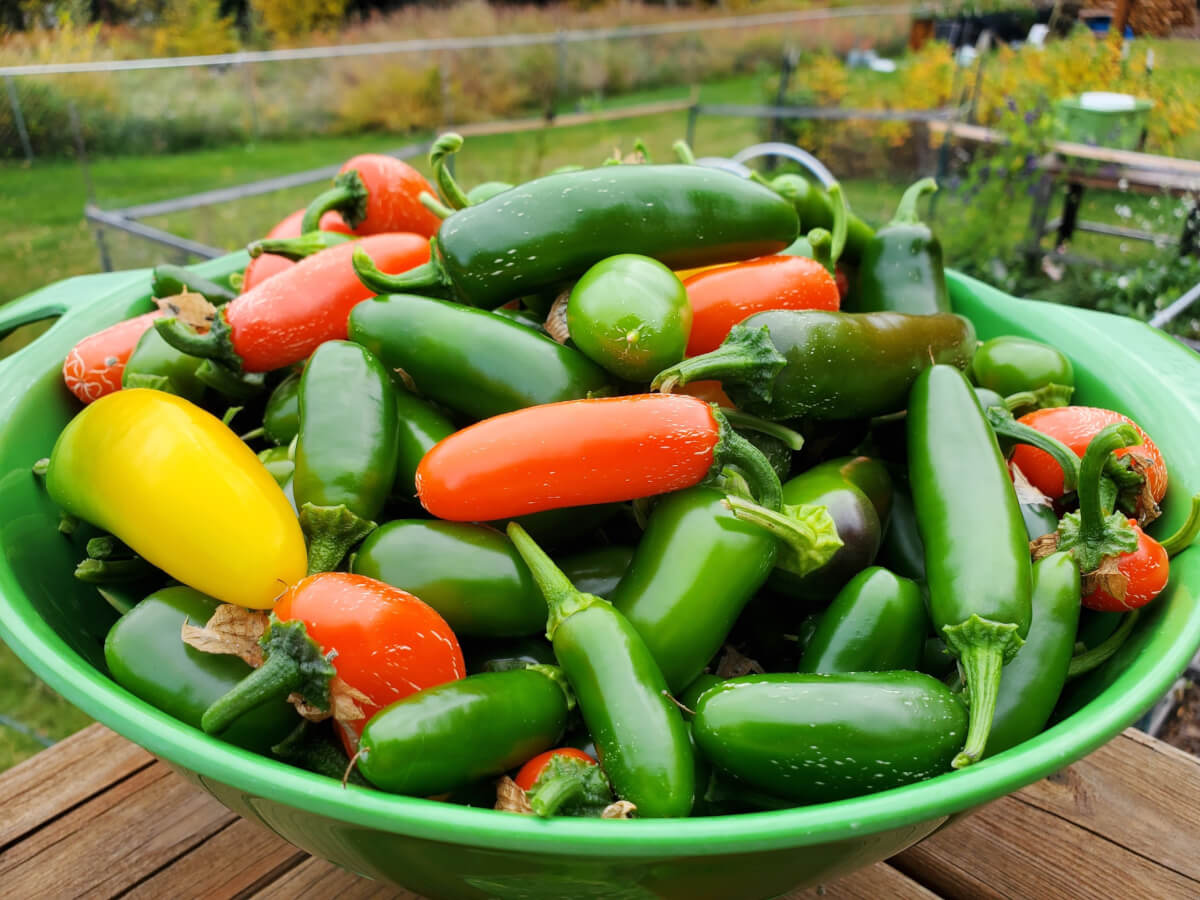Best Fertilizers for Peppers: Increase Growth and Flavor Naturally
Wiki Article
Exactly How Plant Foods Play an Important Duty in Cultivating Bountiful and healthy and balanced Pepper Crops
Fertilizers act as the backbone of successful pepper farming, offering a critical method to nurturing the soil and promoting optimum plant growth. The detailed dance between crucial nutrients and the pepper plants' physiological procedures highlights the pivotal function that plant foods play in guaranteeing a plentiful harvest. From fueling robust root development to bolstering illness resistance, the impact of fertilizers is far-reaching in the growing of healthy and balanced and worthwhile pepper plants. Keep tuned to reveal the nuanced methods which plant foods add to the growing of pepper plants and the sustainable techniques that underpin their efficacy.Significance of Nutrient-Rich Plant Foods
The application of nutrient-rich plant foods plays a crucial function in enhancing the productivity and quality of pepper crops in modern farming methods. Phosphorus, nitrogen, and potassium are primary nutrients that are essential for the development and growth of pepper plants.Poor levels of these nutrients can cause stunted development, minimized yields, and sensitivity to diseases (best fertilizers for peppers). Nutrient-rich fertilizers give a targeted service to guarantee that pepper plants obtain the required components for optimum growth and performance. Additionally, these plant foods assist boost dirt fertility over time, producing a lasting setting for long-term pepper cultivation
Enhancing Plant Development and Growth
To optimize plant growth and growth in pepper plants, calculated application of nutrient-rich fertilizers is vital. Fertilizers play an important role in enhancing the total wellness and efficiency of pepper plants by supplying them with vital nutrients that may be lacking in the dirt. Phosphorus, nitrogen, and potassium are primary macronutrients needed in big amounts by peppers for durable development. Nitrogen aids in leafed environment-friendly development and total plant vitality, phosphorus supports origin development and flower formation, while potassium adds to condition resistance and fruit top quality.In enhancement to these macronutrients, micronutrients such as magnesium, iron, and zinc are likewise essential for the proper performance of different plant processes. Iron, for example, is needed for chlorophyll manufacturing, which is necessary for photosynthesis and general plant development. Zinc plays an important function in enzyme activity and hormone synthesis, influencing plant development and advancement at a cellular level. Magnesium is necessary for the formation of chlorophyll and general energy transfer within the plant.

Boosting Illness Resistance With Plant Foods
By purposefully incorporating targeted fertilizers, farmers can bolster the disease resistance of pepper crops, making sure optimum plant health and efficiency. Plant foods having vital nutrients like phosphorus, potassium, and nitrogen play an important duty in enhancing pepper plants' immune systems, making them more resilient to various conditions.
Optimizing Pepper Yield Via Fertilization
Using a well balanced fertilization Extra resources technique is key to accomplishing maximum pepper yield and ensuring ideal plant performance. By giving peppers with the appropriate nutrients at the correct time, farmers can significantly enhance their return possibility. Potassium, nitrogen, and phosphorus are vital aspects for pepper development, with nitrogen helping in leaf and stem growth, phosphorus sustaining origin growth and flower formation, and potassium promoting overall plant wellness.To optimize pepper return, it is essential to conduct soil examinations to identify existing nutrient degrees and recognize any deficiencies that require to be resolved. Based on these results, farmers can create a tailored fertilizing plan that meets the details demands of their pepper plants. In addition, correct fertilizing strategies such as split applications throughout the expanding season can make sure constant vitamins and mineral schedule for the plants.

Sustainable Fertilizer Practices for Peppers
In taking into consideration sustainable plant food practices for peppers, it is imperative to focus on long-term soil health and wellness and environmental stewardship in conjunction with making the most of crop productivity. One essential technique is the use of organic fertilizers such as garden compost, manure, or cover plants, which not only provide necessary nutrients to the peppers but also contribute to dirt framework and microbial task. best fertilizers for peppers.Additionally, accuracy farming techniques, such as soil testing and targeted nutrient applications, can help optimize plant food usage, ensuring that peppers obtain the nutrients they require without excess overflow into waterways. This not only profits the environment by reducing air pollution yet also conserves prices for farmers by minimizing waste. By taking on lasting fertilizer practices, pepper growers can protect the health of their plants, dirt, and surrounding environments for future generations.
Final Thought
To conclude, fertilizers are essential for growing abundant and healthy and balanced pepper plants. best fertilizers for peppers. They offer essential nutrients for plant growth and growth, increase disease resistance, and take full advantage of yield. By applying sustainable plant food practices, farmers can make certain the lasting health of their pepper plants and add to a more environmentally-friendly read this post here and effective agricultural systemThe complex dance between crucial nutrients and the pepper plants' physiological procedures underscores the critical duty that plant foods play in guaranteeing an abundant harvest.To enhance plant development and growth in pepper plants, critical application of nutrient-rich plant foods is crucial. Fertilizers play an essential role in boosting the total wellness and efficiency of pepper plants by giving them with vital nutrients that may be doing not have in the dirt.By tactically including targeted fertilizers, farmers can bolster the condition resistance of pepper crops, making certain optimum plant health and wellness and performance. Plant foods consisting of essential nutrients like potassium, nitrogen, and phosphorus play a critical role in reinforcing pepper plants' immune systems, making them extra durable to different diseases.
Report this wiki page